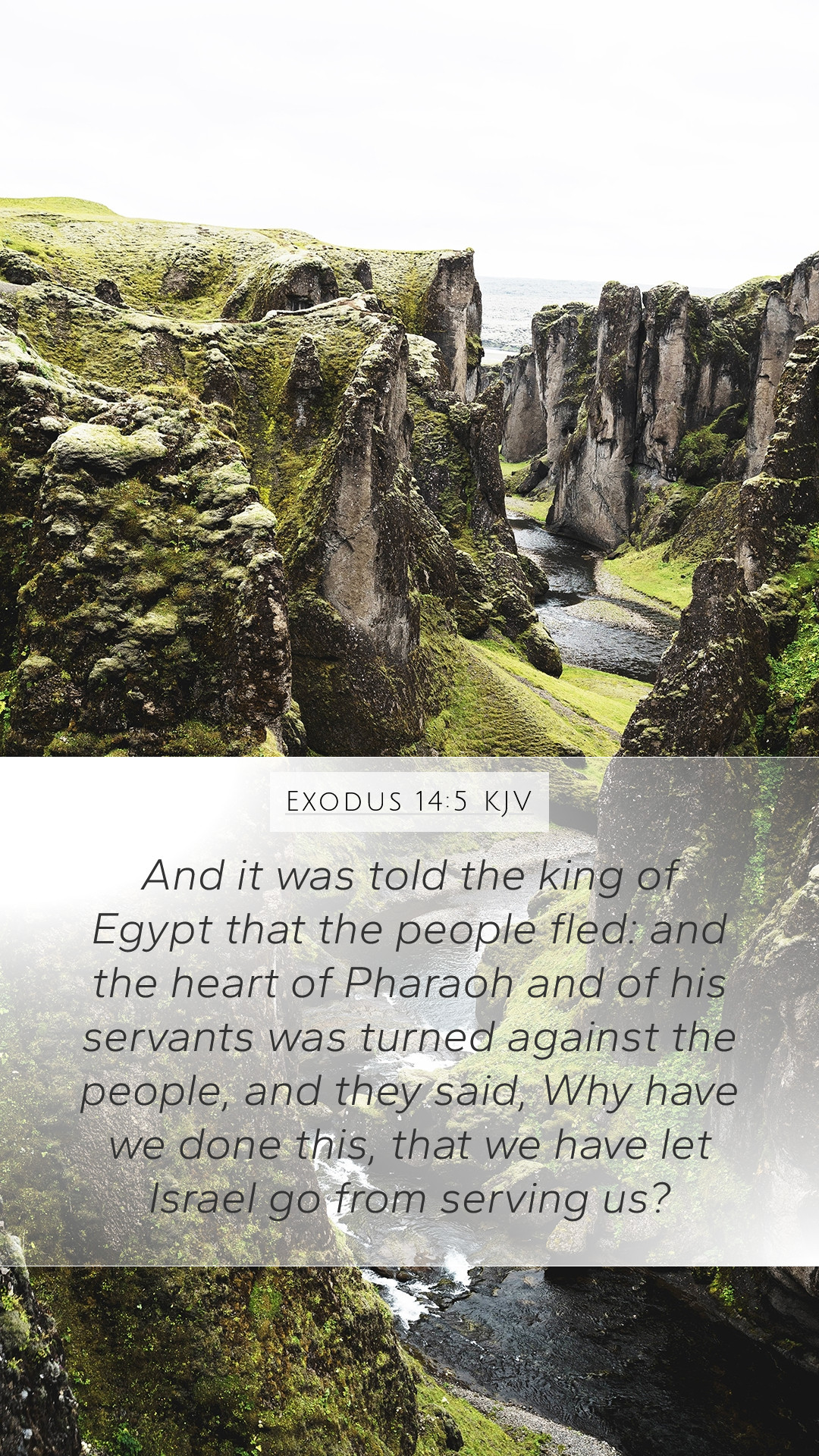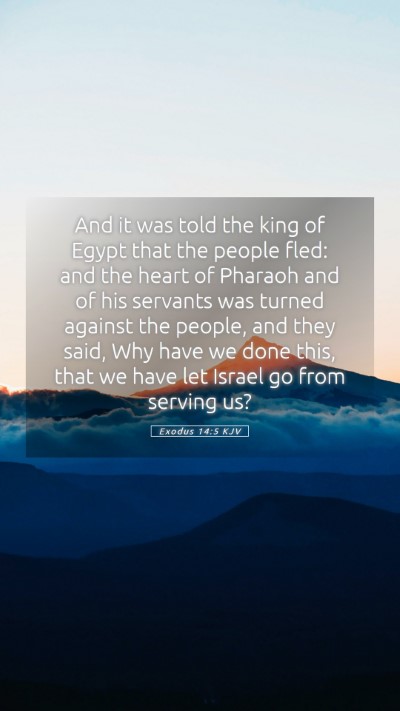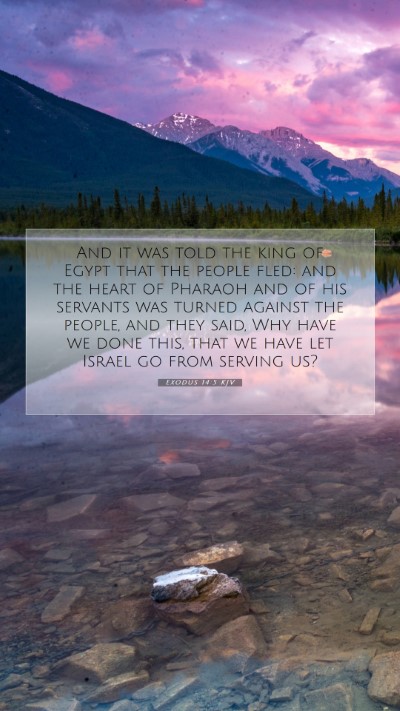Exodus 14:5 - Understanding the Significance
Bible Verse: Exodus 14:5
“When the king of Egypt was told that the people had fled, the heart of Pharaoh and his servants was turned against the people, and they said, ‘What have we done, that we have let Israel go from serving us?’”
Overview of Exodus 14:5
Exodus 14:5 marks a pivotal moment in the biblical narrative, showcasing the tension between the Egyptians and the Israelites. This verse illustrates Pharaoh's regret and rising anger after allowing the Israelites to escape slavery.
Key Themes in Exodus 14:5
- Regret and Consequences: Pharaoh's heart is hardened, demonstrating the consequences of rash decisions.
- Divine Deliverance: The verse highlights the theme of God’s deliverance of His people from oppression.
- Human Emotions: It explores deep human emotions like regret and anger, providing a relatable context for readers.
Commentary Insights
According to Matthew Henry, this verse emphasizes that despite a moment of freedom, oppression can breed regret among oppressors. The situation raises the intense emotional struggle within Pharaoh, illustrating that even the greatest of rulers may falter once their subjects escape their control.
Albert Barnes states that this moment depicts how quickly the hearts of men can turn against their own decisions, often driven by pride and a desire to maintain status. He notes that Pharaoh's heart was turned, hinting at a spiritual lesson about the human tendency to resist change.
Adam Clarke adds that Pharaoh’s reaction stems not just from loss of labor but also from a fear of diminished power. This fear incites a vengeance against the Israelites, illustrating how fear can lead to disastrous decisions.
Interpretations of Exodus 14:5
This verse has been interpreted in many ways, reflecting both its historical context and its spiritual application. Here's a deeper look:
- Historical Context: The verses preceding this one explain the aftermath of the plagues and the Israelites’ hasty departure. Pharaoh’s sudden change of heart serves as a reminder of the fragility of human resolve.
- Theological Insight: The event is part of God’s greater plan for Israel’s redemption. This verse reminds believers how God orchestrates events for their eventual liberation.
- Personal Application: Readers can glean lessons on personal freedom, understanding how choices impact one’s path, particularly when fear or pride obstructs judgment.
Application of Exodus 14:5
The reflections provided by this verse can be applied to various aspects of life:
- Recognizing Divine Intervention: Just as God intervened in the lives of the Israelites, individuals today must remain open to divine guidance in their own plight.
- Understanding Human Nature: The way Pharaoh reacted can serve as a lesson in humility, urging individuals to reflect on whether their pride prevents them from making righteous choices.
- Facing Regrets: This verse compels readers to confront their choices and avoid rash decisions that could lead to regret.
Cross References
Several other scripture passages resonate with Exodus 14:5, enhancing its meaning:
- Exodus 3:19-20: God predicts Pharaoh’s hardened heart.
- Exodus 12:31-33: Pharaoh’s initial decision to release the Israelites.
- Romans 9:17-18: New Testament reflection on God’s sovereignty over rulers.
- Psalms 105:25: God turning the Egyptians’ hearts against His people.
Conclusion
Exodus 14:5 encapsulates a critical moment in the liberation narrative of the Israelites, revealing powerful themes of human emotion, divine intervention, and the consequences of actions. The verse not only serves as a historical marker but also provokes thoughtful consideration on personal choices and spiritual awareness.
Further Study and Reflection
For individuals involved in Bible study groups or engaged in online Bible study, this verse provides a rich ground for discussion, encouraging participants to explore the broader implications of the Israelites’ journey, the nature of leadership, and the principles of divine justice.
Utilizing various Bible study tools and Bible study resources can enhance understanding and application of such verses in both personal and communal contexts.


